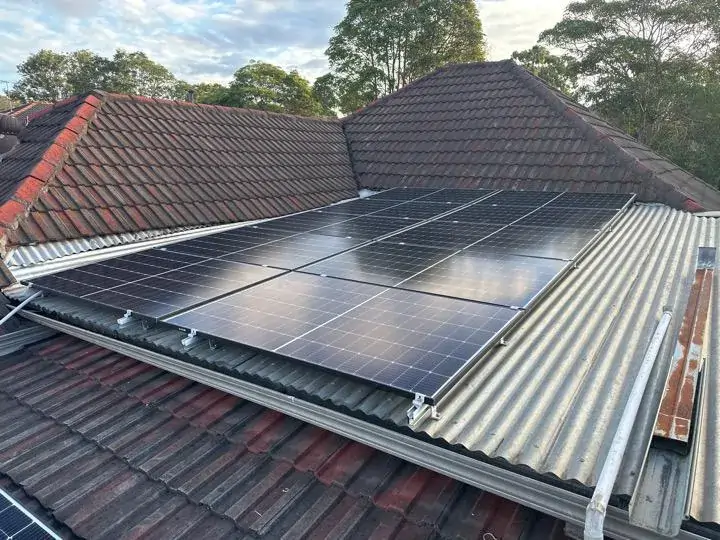As the world increasingly turns toward renewable energy solutions, solar energy has emerged as a frontrunner, particularly for homeowners seeking to reduce their utility bills. This comprehensive guide explores how adopting solar energy can not only contribute to a sustainable future but also lead to significant financial savings.
Understanding Solar Energy
Solar energy harnesses the power of the sun through photovoltaic (PV) cells. These cells convert sunlight into electricity, which can be used to power homes, businesses, and even electric vehicles. By tapping into this abundant resource, homeowners can significantly reduce their dependence on traditional energy sources and lower their monthly utility expenses.
The Financial Benefits of Solar Energy
1. Reduced Electricity Bills
One of the most immediate benefits of installing best solar panels australia is the reduction in electricity bills. By generating your own electricity, you decrease the amount you need to purchase from your utility provider. In many cases, homeowners can eliminate their electricity bills entirely, especially in regions with abundant sunlight.
2. Federal and State Incentives
Many governments offer incentives for solar energy installations, such as tax credits, rebates, and grants. The Federal Investment Tax Credit (ITC) allows homeowners to deduct a significant percentage of their solar system costs from their federal taxes. Additionally, numerous states and local governments provide their own financial incentives, making solar energy even more affordable.
3. Increased Property Value
Investing in solar panels can also increase your home’s value. Studies have shown that homes with solar energy systems sell for more than comparable homes without them. Potential buyers are often willing to pay a premium for homes with solar installations, recognizing the long-term savings on utility costs.
4. Low Maintenance Costs
Solar energy systems require minimal maintenance. Most solar panels have warranties ranging from 20 to 25 years, ensuring their durability and performance over time. With few moving parts and no fuel costs, the long-term maintenance expenses are significantly lower compared to traditional energy sources. solar panel price australia has decreased over the past decade, making solar energy a more viable option for many households.
The Long-Term Financial Impact of Solar Energy
1. Energy Independence
By switching to solar energy, homeowners can achieve a degree of energy independence. With rising energy costs, relying on the grid can be financially burdensome. Solar energy allows you to generate your own power, safeguarding you against fluctuating electricity prices.
2. Locking in Energy Costs
When you install solar panels, you can often lock in your energy costs for decades. This is particularly beneficial in areas where utility rates are rising. Instead of worrying about annual price hikes, you can enjoy stable energy costs, providing financial predictability.
3. Net Metering Opportunities
In many regions, homeowners can take advantage of net metering programs. This allows you to sell excess electricity generated by your solar panels back to the grid. As a result, you can receive credits on your utility bill, further offsetting your energy costs.
Environmental Savings and Their Financial Implications
1. Reduced Carbon Footprint
Switching to solar energy significantly reduces your carbon footprint, contributing to a healthier environment. While this benefit may not directly translate into immediate financial savings, it fosters a more sustainable future, which can have long-term economic benefits by mitigating climate change-related costs. solar inverter australia are crucial components of solar energy systems, converting the direct current (DC) generated by solar panels into alternating current (AC) for home use.
2. Supporting Local Economies
Investing in solar energy often means supporting local businesses, such as installation companies and manufacturers. This investment can stimulate local job creation and economic growth, contributing to a more robust community economy.
Choosing the Right Solar System for Your Needs
1. Assess Your Energy Needs
Before installing a solar system, it’s crucial to assess your energy consumption. Understanding your usage patterns helps you determine the size of the solar system you need. Consider factors such as the number of occupants in your home, the appliances you use, and your overall energy habits.
2. Research Available Options
There are various solar solutions available, including grid-tied, off-grid, and hybrid systems. Each option comes with its own set of benefits and costs. A grid-tied system allows you to remain connected to the utility grid, while off-grid systems provide complete independence. Hybrid systems combine the advantages of both.
3. Select a Reputable Installer
Choosing a reputable solar installer is critical for ensuring that your system is installed correctly and efficiently. Look for companies with positive reviews, certifications, and a proven track record in the industry. A quality installation can maximize your system’s performance and longevity.
Conclusion
In summary, transitioning to solar energy offers a multitude of financial benefits, from reduced electricity bills to increased property value. By leveraging federal and state incentives, homeowners can significantly offset their initial investment costs. Additionally, the long-term savings, coupled with the positive environmental impact, make solar energy a wise choice for those looking to save money while contributing to a sustainable future.
As we embrace renewable energy solutions, it’s clear that solar energy stands out not only as an environmentally friendly option but also as a financially savvy investment. By understanding the various benefits and choosing the right system for your needs, you can position yourself to enjoy the substantial savings that solar energy has to offer.


